The Reiki Digest for May 16, 2007: Spring Revue of Reviews, Part 2
Dear Readers,
It's easy to introduce a friend to The Reiki Digest -- just click on the little envelope at the bottom of each post and you can e-mail it directly to anyone you choose.
It's also easier than ever for your friends to subscribe, or for you to manage your own subscription, now that our new improved subscription form is online.
We've made some slight adjustments to our new e-mail format, in response to the helpful suggestions you've made. Thanks!
Very best wishes,
Janet Dagley Dagley
Editor
The Reiki Digest
editor@thereikidigest.com
The Spring Revue of Reviews: Part 2
Welcome to the second installment of our Spring Revue of Reviews! We have so many books and other material to review that we just couldn't fit it all into one issue. If you missed Part 1, don't worry -- you can still read it on The Reiki Digest web site. Again, this is an eclectic assortment, not a comprehensive collection -- just a few of the books we've read in the past few months, along with reviews of some music you probably haven't heard.
The 9 Dimensions of the Soul
Essence and the Enneagram
David Hey
O Books (2006)
"Essence and the Enneagram" is a more popular book subtitle than you might think: It turns up in the 1994 book The Tao of Chaos: Essence and the Enneagram by Stephen Wolinsky, the 1997 book Human Types: Essence and the Enneagram by Susan Zannos, and now this one. But what is an enneagram? What does it have to do with essence? And what does any of that have to do with natural healing arts?
An enneagram is simply a nine-pointed geometrical figure, and in this context, we use that figure as a model to identify nine personality types. Although the concept of the enneagram goes back to ancient civilizations, it was brought to the West from the Sufi tradition of the East by Armenian mystic George Gurdjieff, then codified by two South American doctors, a psychotherapist and psychiatrist. Hey puts it this way: "The enneagram is a kind of cosmic mirror that reflects back to us, not only our personality, but all the different dimensions of our Being, our true nature."
And essence? The essence of anything is its true nature. So we look at a person's true nature through Hey's double-layered model of nine enneagram types and nine essence types, and we might see something about ourselves, our clients, or our loved ones that we didn't understand before. Any model can be used in that way. For example, the popular blog quiz "Which Sex and the City Vixen Are You?" Now imagine that the types in question are not contemporary television characters but based on mysterious ancient traditions. Strangely, there has been criticism of the enneagram from skeptics who claim it hasn't been scientifically proven, as well as some who consider it a threat to their religion. Presumably they've also spoken out against the "Sex and the City" types as well, not to mention the old saw, "There are two kinds of people in this world..."
Hey's focus in this book is more on essence than the enneagram, and as he takes you through the various types, you will probably recognize yourself and people you know, just as you might when looking through descriptions of astrological signs. While "What's your essence?" seems unlikely to become a pickup line like "What's your sign?", it is an interesting question, especially if you put it another way: "What's your true nature?"
The Healing Sourcebook
Discover your own path to better health and inner peace
By David Vennells
O Books (2006)
The cover is blue, the title includes the word "sourcebook," the author practices Reiki and the publisher is the same, but DO NOT confuse this with The Reiki Sourcebook. This book does devote one of its 13 chapters to Reiki, beginning with the disclaimer that "although we need to receive an authentic 'attunement' from a Reiki teacher in order to practice fully we can practice Reiki just using the level of life force energy that we possess now." Some hand-position diagrams follow, and then we're off to the next chapter. That's less than helpful! Why not just give the reader an attunement right there on the page, and include a suitable-for-framing certificate?
The other chapters on other subjects, and the book in general, seem to be an amalgamation of too little about too much, thrown together a bit too quickly, perhaps, as evidenced by at least one misspelled chapter title, and a title that is three words on the cover and four words on the inside pages. Was this intended to be an encyclopedia of natural healing modalities? A guide for the reader's personal journey to better health? Hard to say, but it doesn't succeed at either.
The Four Agreements
A Practical Guide to Personal Freedom
Don Miguel Ruiz
Amber Allen Publishing (1997)
Why review a 1997 book in 2007? I've read it myself in the past year, and so have quite a few people I know. For me it was a class assignment. Others may have picked it up from Oprah, who lists it as one of her favorite books. Dr. Deepak Chopra likes it, too: he calls it "a roadmap to enlightenment and freedom." Like the five precepts of Reiki, Ruiz's four agreements provide a very clear, simple set of principles that can lead to a happier, healthier life. And even more important, they can help us break some of the thousands of unhealthy agreements we've made with life without even being conscious of them. It won't spoil the book for you if we list the four agreements here:
1. Be Impeccable with Your Word
2. Don't Take Anything Personally
3. Don't Make Assumptions
4. Always Do Your Best
Like the Reiki Precepts, these agreements are something to strive toward, not kick yourself over if you can't adhere to them 100 percent at all times. Learning them, and thinking about all the other agreements and precepts we adopt in life, reminded me of one of the first sets of precepts I ever learned, guidelines I follow to this day:
"Look both ways before you cross the street, always say 'please' and 'thank you', and be good to your mother." -- Captain Kangaroo
The book's sub-subtitle is "A Toltec Wisdom Book," and the Toltec connection links Ruiz to Carlos Castaneda, as noted on the back cover of the edition I have. The superfluous use of "Don" as if it were a first name is also Castanedesque. But Ruiz is from a separate Toltec lineage, through his mother. Ruiz's work seems to have a different purpose than Castaneda's: this is a self-help book, not anthropology or fiction. It's been around for a decade, which says a lot, and Oprah's endorsement means it'll be with us for some time to come.
The Four Insights
Wisdom, Power, and Grace of the Earthkeepers
Alberto Villoldo, Ph.D.
Hay House (2006)
Mending the Past and Healing the Future with Soul Retrieval
Alberto Villoldo, Ph.D.
Hay House (2005)
Villoldo's four insights aren't as simple as Ruiz's four agreements: each insight comes with four practices to help you shift your perception -- or your "assemblage point," as Castaneda put it -- and improve your life. And yes, he learned them from a teacher he refers to with the honorific "don", like Castaneda's Don Juan and author Don Miguel Ruiz. (In this reviewer's opinion, the "don" references seem somewhat inappropriate, primarily because the native Spanish speakers I know tend to take offense at being referred to as "don" or "dona" because it's too formal.) The ancient wisdom that Villoldo shares comes not from Central America but South America, drawing on secret shamanic traditions said to go back tens of thousands of years. Villoldo's work, particularly the Soul Retrieval book, can be particularly helpful to Reiki practitioners working on past or future issues with clients (or ourselves). In order to heal, we need to understand the stories that control our lives and learn to rewrite them. Villoldo's books can help immensely with that vital process.
Villoldo uses the number four not only for a book title but for the name of his organization, The Four Winds Society, which offers training and expeditions. His "Healing the Light Body" training is on my to-do list, thanks to these books.
Music Reviews
The Reiki Digest now has a music editor, but we haven't put her to work quite yet. Meanwhile, if you've got music you feel would be appropriate for use in a Reiki session, please send us a review copy. That's what Robert Farrell of Pittsburgh, Pennsylvania, did. Farrell's music is modeled on the chakra system, an Ayurvedic concept that was grafted onto Reiki in the west after the death of Hawayo Takata. While traditional Reiki uses the concept of three energy centers, not the seven or twelve used in the chakra system, Farrell's music is still profoundly effective. My experience in listening to it began with a brief mental note -- "Hmmm, this is done on a synthesizer" -- after which I was immediately transported in much the same way as in a Reiki session. I'd love to hear Farrell's work performed by an orchestra, or even on a more complex synthesizer, but even in this simple form, it works. You can hear some samples, and order a CD or two, at Farrell's web site.
We remain in Pennsylvania for our other music review, "Floating" by Sweet Nancy Groff of Lancaster, Pennsylvania. Sweet Nancy teaches us the power of trusting our intuition every time she sits down at the piano. She doesn't use precomposed music; she just sits down and plays. Sometimes she sets a specific intention, as she did for "Floating," which was intended to be used on hot-air balloon rides. It works well for Reiki sessions, also.
That's it for the Spring Revue of Reviews, but not the end of our reviews. Between now and our Year-End Revue of Reviews, we hope to include a review or two with most issues. For that to happen, we need more review copies from publishers, and more reviewers. If you're interested in reviewing a book for The Reiki Digest, contact us at editor@thereikidigest.com. There is no payment, but you do get to keep the book you review.
Next week, we'll be back with all our regular features, including the Reiki Roundup and our Celeb-Reiki feature. If you can't wait till then, here's a hint about our next Celeb-Reiki: This world-famous entrepreneur never finished college, and his charitable foundation includes the words "and Melinda" in its name.











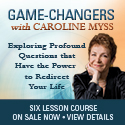
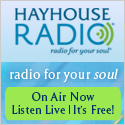





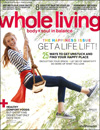
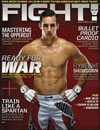
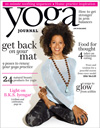
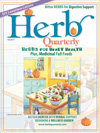
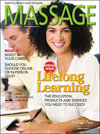

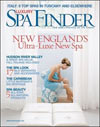
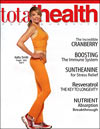






0 Comments:
Post a Comment
<< Home